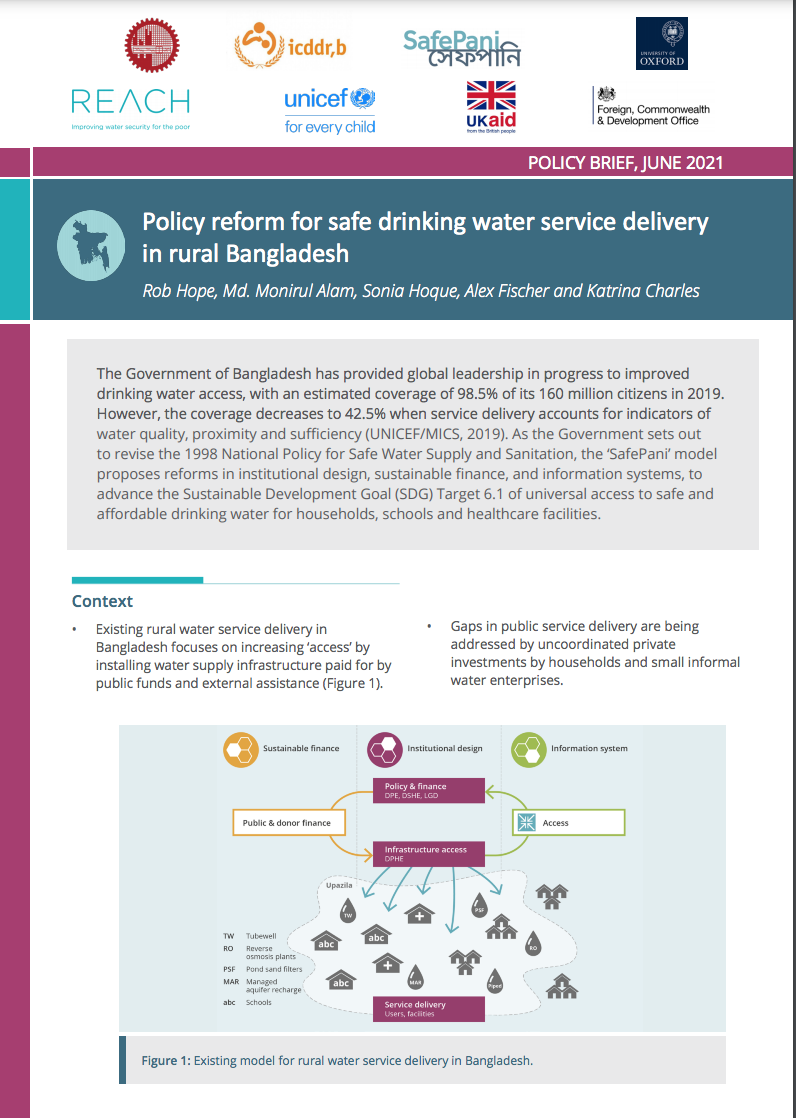Authors: Rob Hope, Md. Monirul Alam, Sonia Hoque, Alex Fischer and Katrina Charles
The Government of Bangladesh has provided global leadership in progress to improved drinking water access, with an estimated coverage of 98.5% of its 160 million citizens in 2019. However, the coverage decreases to 42.5% when service delivery accounts for indicators of water quality, proximity and sufficiency (UNICEF/MICS, 2019).
As the Government sets out to revise the 1998 National Policy for Safe Water Supply and Sanitation, the ‘SafePani’ model proposes reforms in institutional design, sustainable finance, and information systems, to advance the Sustainable Development Goal (SDG) Target 6.1 of universal access to safe and affordable drinking water for households, schools and healthcare facilities.

